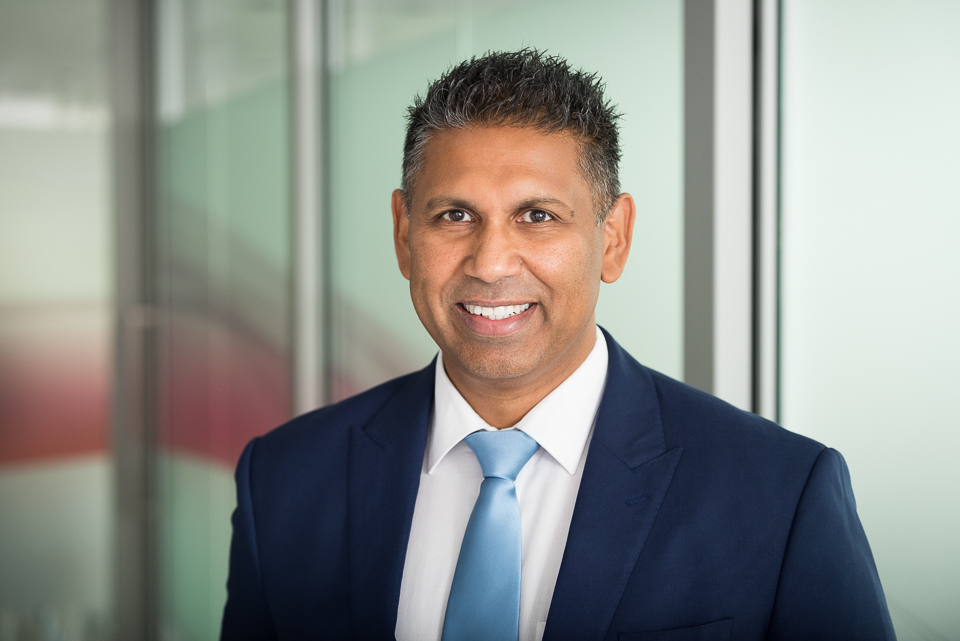advertisement
Trend Micro making strides to secure Africa’s cloud
Multinational cyber security and defense company, Trend Micro, has a 30-year history and is on the verge of making Africa…

Multinational cyber security and defense company, Trend Micro, has a 30-year history and is on the verge of making Africa part of its exciting story.
“We are one of the largest Pure-Play security companies in the world. Our story is interesting we started in 1988 in Cupertino, California. We moved our headquarters to Japan ten years later and we are now a Japanese headquartered company,” said Indi Siriniwasa, Trend Micro, Vice President Sub- Saharan Africa, during an interview with CIO East Africa.
With global headquarters in Tokyo, Japan, a R&D center in Taipei, Taiwan, and regional headquarters in Asia, Europe and the Americas. The company operates in 50 plus companies and has 26,000 staff globally.
advertisement
“We are chasing $1.5 billion in revenues last year, we are a very profitable business, but first and foremost, what we care about is our customers. In our way of doing business the customer comes first then our internal staff and then the shareholders, if you have good customers and a good team automatically it will drive growth and that will ultimately deliver the shareholder values,” added Siriniwasa.
Trend Micro is currently trying to consolidate its position in the African market, a stance that was made clear during the recently concluded Africa Cyber Defence Summit, where the company exhibited their products and Siriniwasa got a chance to present to the attendees and introduce the companies beliefs and ambitions for the market.
“I was the managing director for Australia and we grew that market tremendously. So, then we looked at where we were in Africa and realized we had good businesses in East, West and South Africa and in looking at the continent as part of consolidation and as part of where the focus areas are we saw Africa as a real growth area. What we want from this market is to be the number one security product as well as the trusted advisor,” said Siriniwasa.
The company develops security software for servers, cloud computing environments, consumers, and small, medium and enterprise businesses.
advertisement
Trend Micro has three pillars to their products which include:
- Hybrid Cloud Security- Improve visibility and simplify security management across physical, virtual, and cloud environments. The company’s cloud and virtualization security products provide cloud security for customers of VMware, Amazon AWS, Microsoft Azure, Oracle and vCloud Air;
- Network Defense- Detect, analyze, and prevent ransomware, advanced threats, and targeted attacks. Powered by XGen security, Trend Micro Network Defense goes beyond next-gen IPS to provide a blend of cross-generational techniques that apply the right technology at the right time to deliver integrated detection and prevention of known, unknown and undisclosed threats;
- User Protection- Protect users and their information – on any device, any application, anywhere. Trend Micro User Protection, an XGen security solution, protects users against today’s ever-changing threats like fileless malware, targeted attacks, and ransomware variants, including WannaCry. Multiple integrated layers of protection across endpoint, email, web and SaaS applications, protect your users regardless of device, application, network, or location.
“We are very focused on these pillars, we keep expanding and improving the pillars over the years to ensure that we have the best offerings around. For the past eight years we are number one in cloud security, we have 30 per cent market share in the global market,” he continued.
Trend Micro see’s East Africa’s potential

“I see a massive potential here in East Africa when it comes to cloud security because you have Azure, AWS and Google all making a play in the region,” added Siriniwasa.
According to a research done by the Communications Authority (CA) and the Kenya National Bureau of Statistics (KNBS) 35.6 per cent of public sector institutions use cloud services in comparison to only 22.9 per cent of private businesses in Kenya, a trend largely attributed to government’s strategy to digitise services across the public sector. While there is growth, most businesses and public institutions are not on the cloud.
advertisement
Data from the CA and KNBS survey shows that the biggest hurdle to cloud is ignorance. About 53.1 per cent of public institutions not on the cloud and 37.1 per cent of private businesses said that they had “insufficient” knowledge about the services.
The other factors affecting cloud adoption include: cost, security concerns and a poor regulatory framework. Siriniwasa says that with proper data protection acts more companies in East Africa will understand their data better and know what should be on the cloud and what should not be on the cloud.
“Cloud is very secure if you do it the right way. And in the journey to cloud adoption we are the best when it comes to security,” he explained
Siriniwasa further explained, “We made a conscious investment in network security a long time ago and we have been watching the market, developing the market and working on it. We acquired HP TippingPoint a few years back and have integrated that into our network security portfolio,”
“We see immense potential in securing, banks, healthcare and government agencies here (East Africa) at a network level, on cloud and at an endpoint level, this will see all three of our products working in harmony in this market,” he concluded.